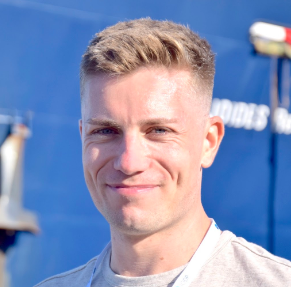Time:14:00 -15:00, 15 October 2024
Venue:Meetingroom 328, Building No. 16, Tianjin University (Weijin Road Campus)
Speaker: Dr. Jannik Martens (Columbia University)
Abstract:
Carbon cycle models suggest that past warming events in the Arctic may have caused large-scale permafrost thaw and carbon remobilization, thus affecting atmospheric CO2 levels. However, observational records are sparse, preventing spatially extensive and time-continuous reconstructions of permafrost carbon release during the late Pleistocene and early Holocene. Using carbon isotopes and biomarkers, this presentation demonstrates that the three most recent warming events recorded in Greenland ice cores caused massive remobilization and carbon degradation from permafrost across northeast Siberia. This amplified permafrost carbon release by one order of magnitude, particularly during the last deglaciation when global sea-level rise caused rapid flooding of the land area thereafter constituting the vast East Siberian Arctic Shelf. Demonstration of past warming-induced release of permafrost carbon provides a benchmark for the sensitivity of these large carbon pools to changing climate.
About the speaker:

Jannik Martens is a Postdoctoral Research Fellow at the Lamont-Doherty Earth Observatory of Columbia University, focusing on climate change and carbon cycling in polar regions using isotopic and molecular geochemical techniques. He began his academic career at the University of Cologne, where his M.Sc. research focused on plant and microbial biomarkers in Siberian permafrost deposits. Jannik completed a Ph.D. in Environmental Science at Stockholm University, where he investigated large-scale permafrost carbon release and land-ocean carbon transfer during both current and past climate warming periods, using isotope and molecular analyses of Arctic Ocean sediments. At Columbia, his work expanded to include Arctic Ocean acidification and the climate sensitivity of the Greenland Ice Sheet, using boron isotopes and molecular biomarkers. He continues to lead research on permafrost carbon stabilization through mineral-organic interactions, as well as terrestrial carbon export and remineralization across the Arctic land-ocean continuum. In addition to his research, Jannik has held voluntary roles with the Permafrost Young Researchers Network and actively engages in outreach and education initiatives at the United Nations campus in New York City. Up to now, Dr. Jannik Martens has published some articles in Nature Communications, Science Advances, Earth System Science Data.